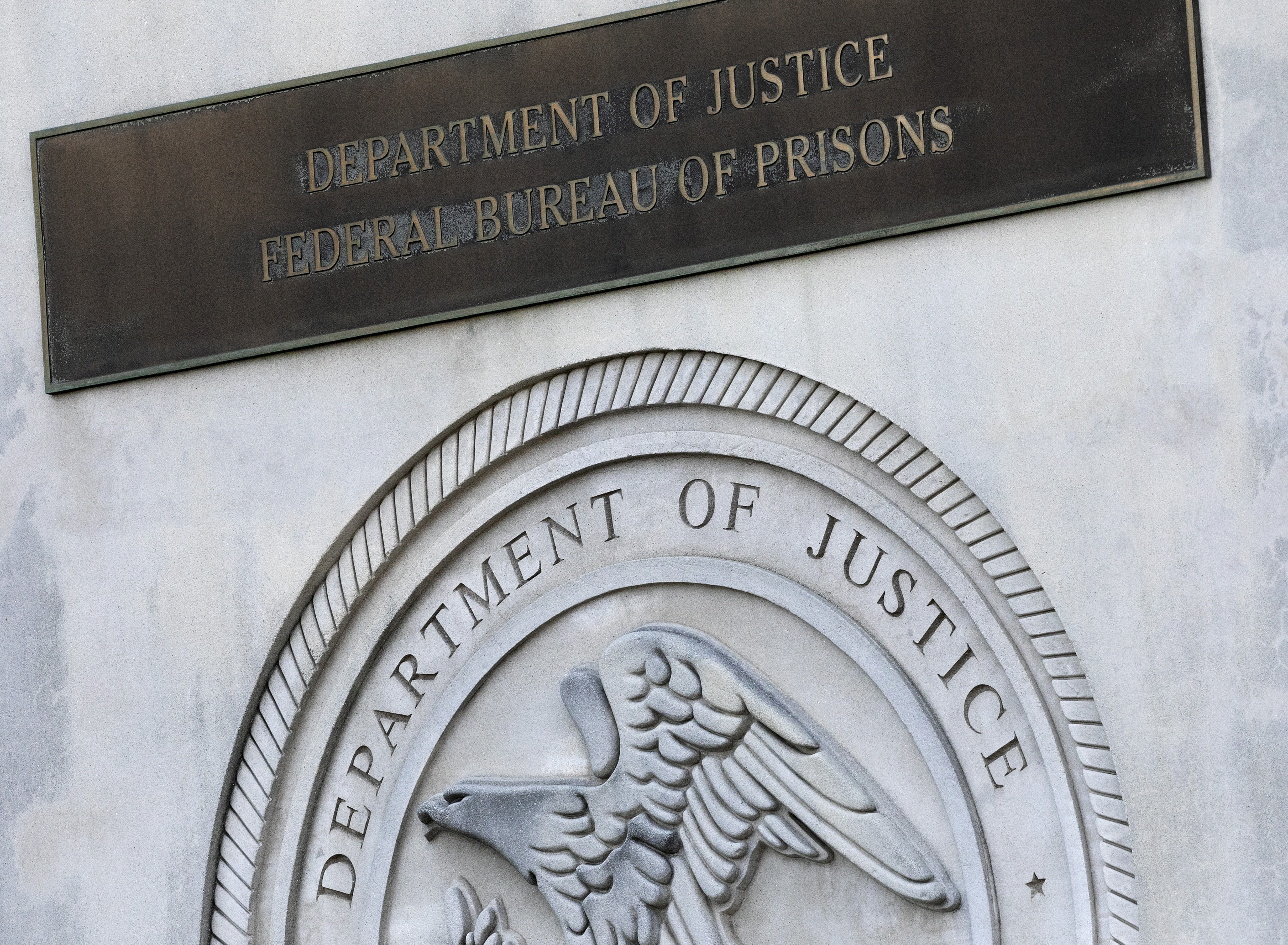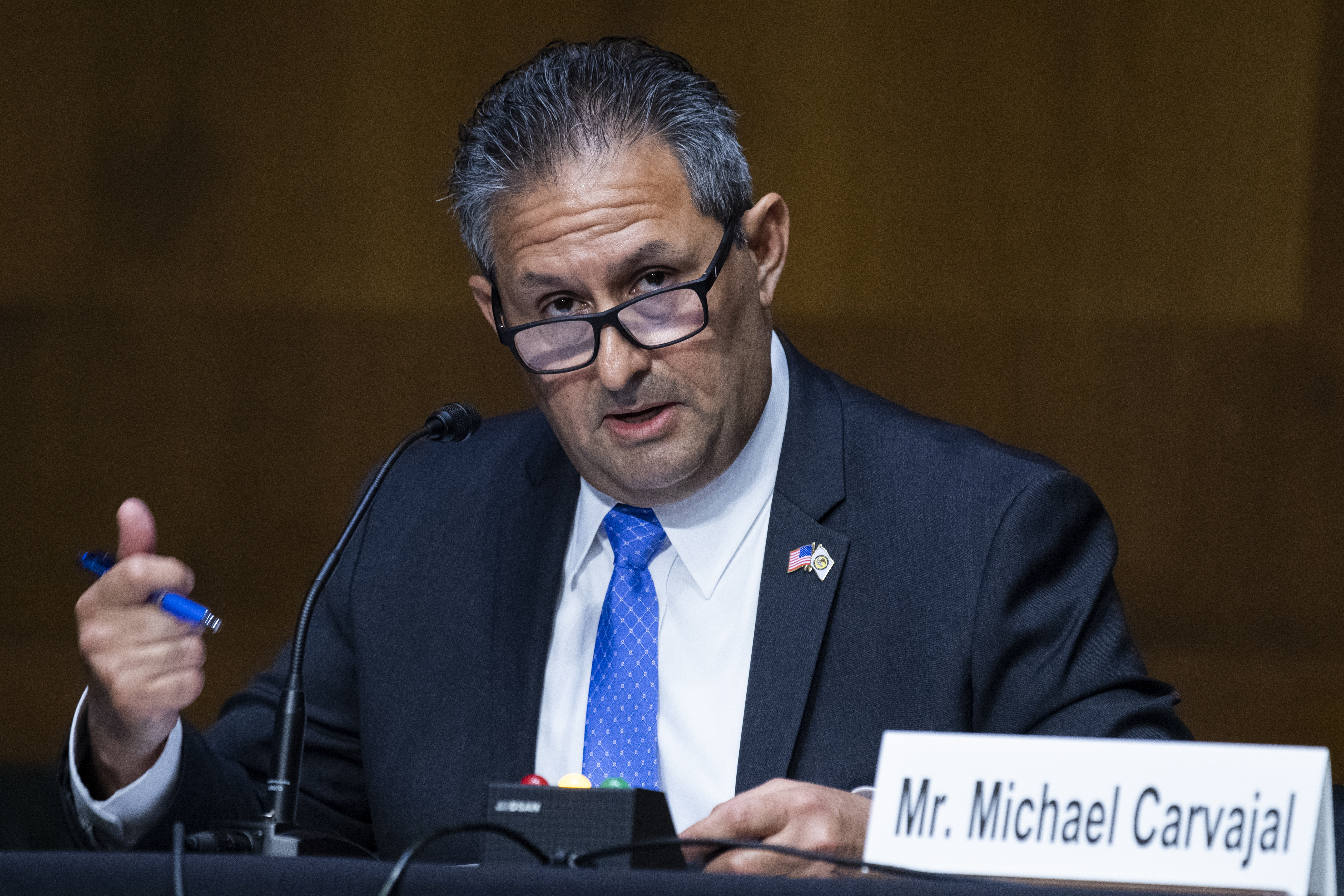
For months, inmates and staff say, their calls for help were ignored. And in this aging prison of deep despair — a place where sexual abuse has been rampant, authorities acted with utter indifference and the workforce was deeply demoralized — the cries for help had been many and varied.
Just weeks earlier, an Associated Press investigation had revealed a culture of abuse and cover-ups that had persisted for years at the Federal Correctional Institution in Dublin, California, a women-only facility called the “rape club” by many who know it. Because of AP reporting, the head of the federal Bureau of Prisons had submitted his resignation in January. Yet no one had been named to replace him, so he was still on the job.
Now he was responding to the problems in Dublin — but only after an angry congresswoman had called him to complain.
So early March found the lame-duck administrator, flanked by a task force of senior agency officials, arriving at the prison after flying in to meet inmates and staff in person. According to Dublin inmates, this was how he faced them as he toured the facility:
Get top local stories in DFW delivered to you every morning. Sign up for NBC DFW's News Headlines newsletter.
“You wanted my attention,” Michael Carvajal said, “so here I am.”
More Prisons Coverage
This story is based on interviews with more than a dozen people familiar with the visiting task force’s work, the prison’s operations and the abuse crisis. Many spoke on condition of anonymity for fear of retaliation or because they were not authorized to speak publicly.
The AP visited Dublin, about 21 miles (34 kilometers) east of Oakland, during the same time as the task force, the week of March 7. Lawmakers, disturbed by reports of abuse, traveled there shortly after. Carvajal and some task force members returned in April. In one sign of progress, the agency replaced both of the prison’s associate wardens.
FCI Dublin is one of just six women-only facilities in the U.S. federal prison system. As of April 28, Dublin had about 785 inmates, many serving sentences for drug crimes.
Since last June, five employees, including former warden Ray J. Garcia, have been charged with sexually abusing inmates. Two have pleaded guilty, and the investigation continues: On March 20, a food service foreman was arrested for allegedly touching an inmate’s breasts, buttocks and genitals in October 2020.
Since March, nine other workers have been placed on administrative leave. New inmate sexual abuse and staff employment discrimination complaints were filed during the task force’s visit. FBI agents searched the prison and an employee’s home in mid-April, and at least six internal affairs investigators have been on-site investigating claims.
Carvajal, a Trump administration holdover, joined the task force for the first three days of its weeklong visit. But even as the task force was arriving, things did not seem to be proceeding in a positive direction.
Officials moved inmates out of the special housing unit so it wouldn’t look as full, and they lied to Carvajal about COVID-19 contamination so inmates in one unit couldn’t speak to him about abuse.
Those who managed to get to Carvajal didn’t hold back. In one emotional scene, a woman who said she was abused by prison officials tearfully confronted him in a recreation area as he and members of the task force were meeting with inmates.
She was eventually taken out of the room and offered immediate release to a halfway house. She objected. She wanted to wait so she could tell her story publicly to congressional leaders expected at the prison.
But people at the prison say she wasn’t able to thoroughly express her concerns. Officials told the woman that because she was a potential witness, she couldn’t talk about the investigation, the people said.
In another charged moment, a group of Dublin workers lashed out at Carvajal for putting Garcia in charge of a women’s prison when he’d already had a reputation in prison circles as a misogynist.
“You created this monster,” one worker told Carvajal.
Garcia is accused of molesting an inmate on multiple occasions from December 2019 to March 2020 and forcing her and another inmate to strip naked so he could take pictures while he made rounds.
Carvajal did seem taken aback by the lack of security cameras in critical areas — an issue the prison’s union had been raising for six years — and pledged to speed the process for installing them. But seven weeks later, not one new camera has been installed.
An ongoing AP investigation has uncovered deep flaws within the Bureau of Prisons, including severe staffing shortages, inmate escapes and the mishandling of the COVID-19 pandemic.
Among the AP’s findings:
—Criminal misconduct: More than 100 Bureau of Prisons workers arrested, convicted or sentenced for crimes since the start of 2019, but the agency has turned a blind eye to employees accused of misconduct, in some cases failing to suspend them after their arrests.
- Staffing crisis: Nearly one-third of federal correctional officer positions are vacant, forcing prisons to use cooks, teachers, nurses and other workers to guard inmates, hampering the response to emergencies, including inmate suicides.
—Escaping inmates: 29 prisoners escaped from federal prisons in an 18-month span, with nearly half still at large. At some institutions, doors are left unlocked, security cameras are broken and officials sometimes don’t notice an inmate is missing for hours.
—Superspreader executions: An unprecedented string of federal executions likely acted as COVID-19 superspreader events, just as health experts warned could happen when the Trump administration insisted on resuming executions during a pandemic.
—Crumbling infrastructure: A rare look inside the Metropolitan Correctional Center, the federal jail in Manhattan where Jeffrey Epstein died, revealed squalid, unsafe conditions including falling concrete, freezing cold temperatures, busted cells and broken pipes.
The AP's reporting has forced lawmakers to take notice.
Sen. Jon Ossoff, D-Ga., introduced legislation that would require the Bureau of Prisons to fix broken cameras. Sen. Dick Durbin, D-Ill., the chairman of the Senate Judiciary Committee, went to the Senate floor and read AP stories into the congressional record as he demanded Attorney General Merrick Garland fire Carvajal.
A few weeks later, the AP broke the news that Carvajal and his top deputy were resigning.



